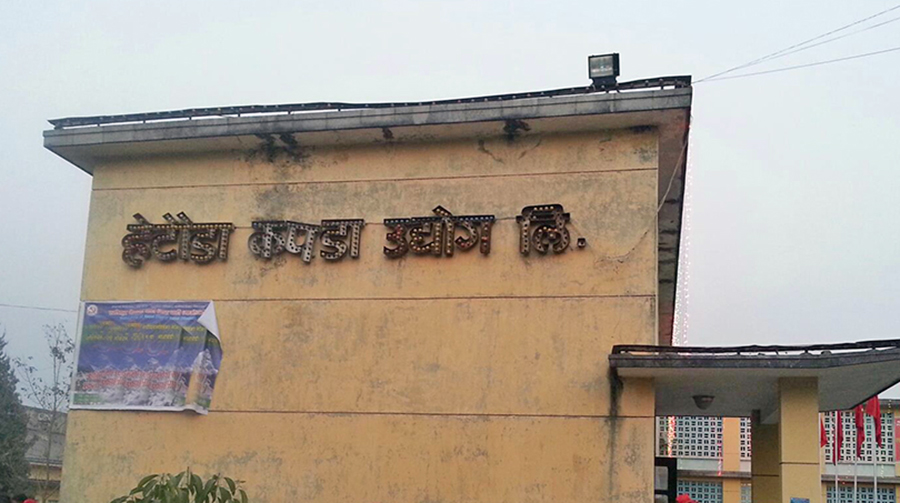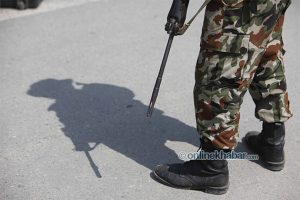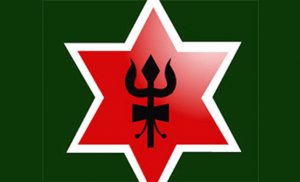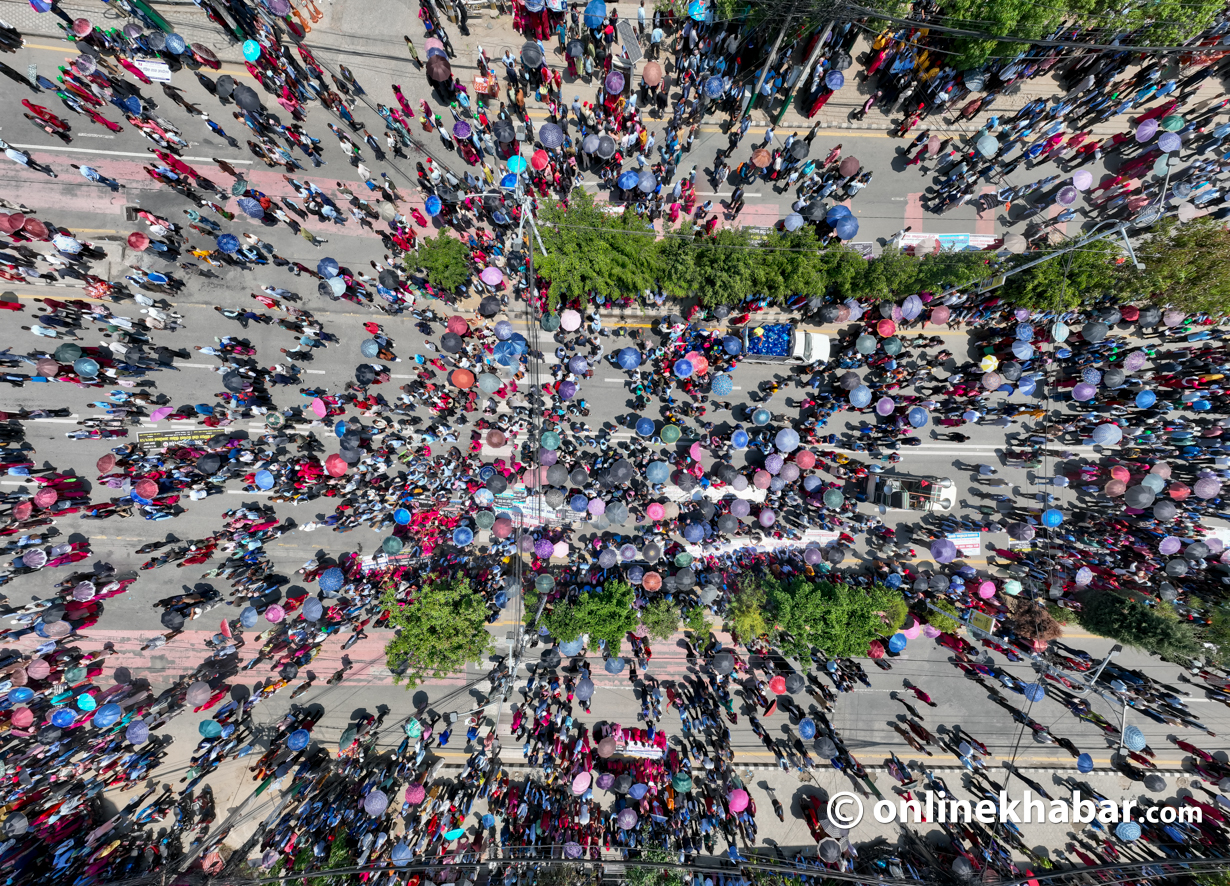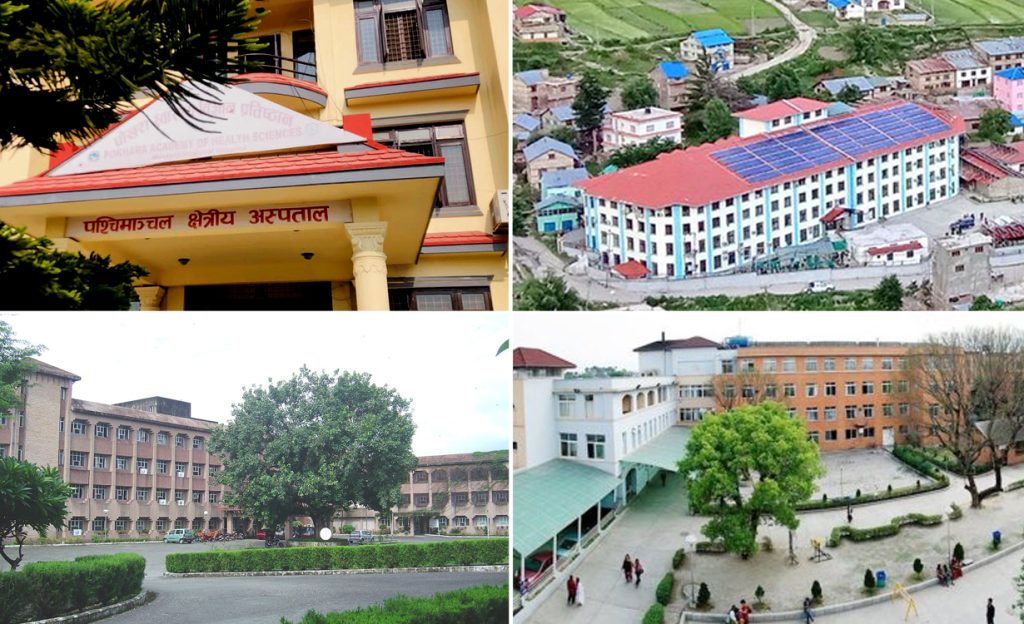
On December 19, 2022, Major General Prem Shahi was given a letter of retirement by the Nepal Army. But, dissatisfied with the decision, he went to the Supreme Court arguing he was forced to retire illegitimately. The court issued an interim order in his favour.
But when he went to the office with the interim order, he was arrested, on January 3, 2023.
On March 2, he got out after spending 59 days in custody of the Military Police after the Supreme Court issued an interim order to release him.
But why was Prem Shahi arrested? What wrong did he do that he was forced to retire and put into custody for two months? And why did the Nepal Army not allow Shahi to work despite the Supreme Court issuing an interim order asking he is reinstated?
While some questions can be easily answered, many of the related questions are still unanswered.
Why was he arrested?
Prem Shahi was arrested on charges of financial irregularities but was later charged with mutiny, disciplinary breach and damage to property. However, the Army Headquarters, which had charged him with a serious offence like mutiny, did not take strict action. He was accused of financial irregularities and put an end to the case.
“People get charged with life sentences for mutiny. Is a court marshal for financial irregularities enough for such a crime?” questions a former high-ranking army official.
The Summary General Military Court did not want to announce the verdict on this case. But after the Supreme Court summoned Colonel Mahendra Jung Shah and Lieutenant Colonel Kuldip Timisina, the military court had to announce that Shahi had been relieved from his duties.
Sources say Prem Shahi’s family was pressured not to file a writ petition at the Supreme Court.
On March 1, Shah and Timisina were asked to be present at the Pashupati room of the Tribhuvan Army Officers Club in the Army Headquarters for the trial of the case, in which they were accused of mutiny. Mentioning that a Summary General Military Court had been formed under the chairmanship of Tara Dhwaj Pandey, they were asked to be present for the trial.
But as soon as they appeared, Shah and Timsina were arrested. Following that, Lieutenant Colonel Timsina submitted an application asking for copies of all the documents and evidence related to the case, saying that a case related to mutiny had been filed against them even though they were being questioned about another matter.
He had also put in the petition that he should have been able to defend himself through a legal practitioner of his choice according to the right in the constitution. However, it is mentioned in the writ petition filed at the Supreme Court that the army sent him to prison without even giving him that right. He claimed that he was not able to give any answer and defend himself against the charges against him.
Why and how was he released?

While hearing the petition, the bench of Supreme Court Justice Hari Prasad Phuyal on March 1 ordered both of them to appear with certified copies of the main documents of the case within three days. As soon as the order to submit those documents came through the Attorney General’s office, the Army Headquarters was shocked.
On March 2, an employee of the court and a relative went to Army Headquarters to deliver a court order. However, the Army Headquarters refused to register the order. From 10 am to 5 pm, employees and relatives waited outside the gates of Army Headquarters and left home disappointed.
A lawyer who went inside was escorted out by a team of military police. According to Binod Karki, the former treasurer of the Supreme Court Bar Association, it is contempt of the court for any state body not to comply with the deadline for the order of the Supreme Court or any other court.
“When the prime minister or the president doesn’t get a pass, neither does the Nepal Army,” says Karki.
He says that the army should have replied to the court and stated if the Prem Shahi case had been too sensitive for a civil court.
“They can answer by stating the military court will deliver justice. That is their right too, but in this case, they disrespected the Supreme Court and obstructed the justice process,” says Karki.
The army did not receive the summons the entire day. Instead, a military officer says a military court order was hurriedly issued to release all of them (three including Prem Shahi) on March 2 amid pressure. There is proof that the military court issued the order in a rush as it was given verbally and not in writing.
According to an officer of Army Headquarters, there was a risk that more questions would be raised against the army as soon as the document filed against three officers including Prem Shahi for military mutiny went to the court.
“A general and two of his subordinates being indulged in the mutiny was not a small thing. There was a risk that the entire Army Headquarters would become a laughing stock if documents were released to the Supreme Court,” says an official of the Nepal Army.
When two people were ordered to appear before the court, Shahi was also released. An officer close to him says the plan was to keep Shahi in custody until the final verdict was made in his age dispute case.
“There was too much pressure to release him so he was released,” says the officer.
The officers did not work in the same unit. However, all of them were known as the close officers of former Chief of Army Staff Purna Chandra Thapa. The current military leadership has accused them of doing activities against the current Chief of Army Staff, Prabhuram Sharma.
According to sources close to the current military leadership, Thapa at that time lobbied to extend his tenure. Therefore, officials close to Sharma claim as he was preparing to take over the leadership, Sharma was being watched by Prem Shahi and others. Now with Sharma at the helm, he is retaliating against taking Official’s claim that they are now being retaliated against.
What about different birth dates?
The issue started when the Army Headquarters sent a letter to Prem Shahi on December 19, 2022, telling him he had reached the retirement age of 58.
Following that, Shahi filed a petition at the Supreme Court stating he was being forced to retire based on a wrong birth date.
Shahi stated his birth year, according to the documents presented to the army, during recruitment was January 4, 1966. That meant his term increased by a month. The army, however, gave him a letter of retirement based on the character certificate issued by Budhanilkantha School. But in all other government documents, his date of birth is listed as December 24, 1966.
Prem Shahi stated that since the character certificate was according to the Gregorian calendar, there was an error while converting it to the Bikram Sambat calendar. Even a department of the Nepal Army had stated there was an error in his date of birth and had recommended using the date of birth mentioned on his citizenship certificate.
But then Defence Minister Iswar Pokharel did not uphold the recommendation. Noting this, Justice Phuyal issued a verdict ordering the Nepal army to not force Shahi to retire.
Was the arrest okay?

Prem Shahi was detained by the military police after the order was issued when he went to meet army chief Sharma, say sources.
They say he was detained as he went against the decision of the army. After arresting Shahi, the army also raided his house in Budhanilkatha charging him with financial irregularities.
According to a former Nepal Army officer, detaining him as soon as he received an order from the court was a disgraceful act even from a normal point of view.
“If he was charged with corruption, why wasn’t he asked to retire? He was initially asked to stay at home but when the court asked the army to revoke his retirement, why did they arrest him,” the officer questions.
Interestingly, the army formed a court of inquiry under the leadership of an officer junior to Prem Shahi to investigate him. Baburam Shrestha, who was assigned to lead it, had faced action when Thapa was the chief of army staff. Shrestha’s promotion was withheld for a year after it was found that there was an irregularity in his recruitment process.
A court of inquiry is a team formed to conduct a preliminary investigation into the allegations against a military officer. Based on the report it gives, the chief of the army staff forms a team for a court martial.
The Shrestha-led committee recommended action against Shahi for mutiny, violation of military discipline and damage to government property. Before his report was upheld by Sharma, Timsina and Shah were also made defendants.
According to military sources, Shah is an officer in line to be promoted to the position of brigadier general. However, according to Karki’s report, the Summary General Military Court has ordered that Shah’s promotion be suspended for two years.
After Shah’s promotion was stalled, Om Bahadur Bhatta, a member of the court of inquiry, will be promoted to the position.
“All the sequence of events shows the intention behind prosecuting the case”, says an officer.
While the release of three officers including Prem Shahi seems like a good thing, at the moment, it has raised some serious questions about Nepal Army and the politics that goes on inside it.
This story was translated from the original Nepali version and edited for clarity and length.







